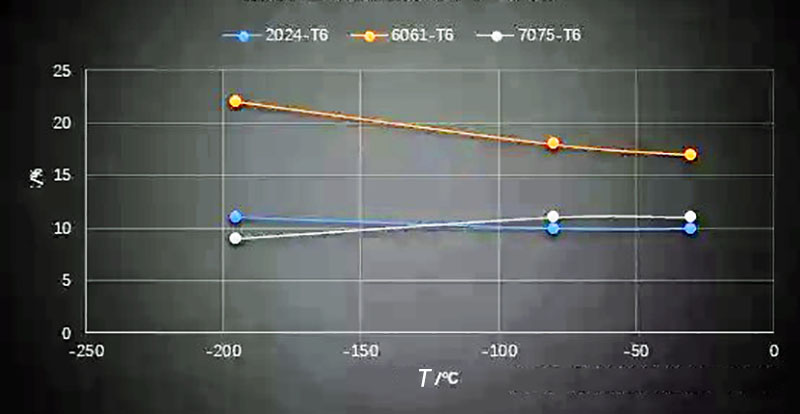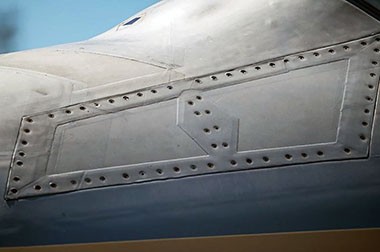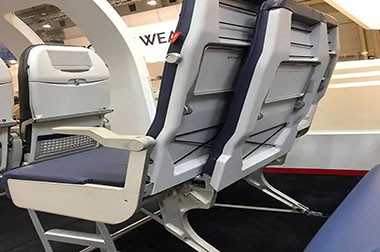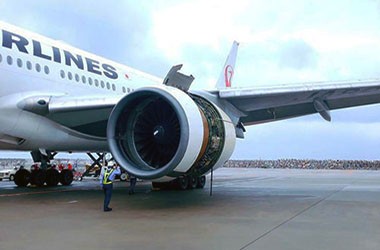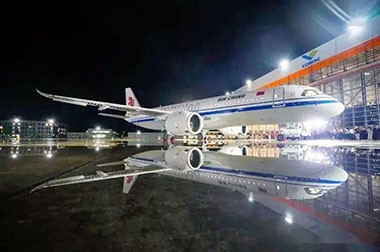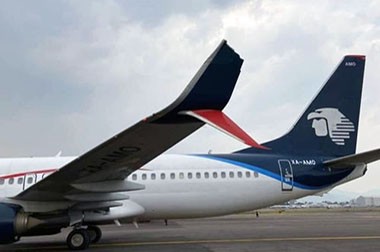Comparison of Typical Aerospace Aluminum Alloys Properties
Typical aerospace aluminum alloys include 2024 (UNS: A92024), 6061 (UNS: S96061), and 7075 (UNS: S97075).
Different series of aluminum alloys have their own advantages and applicable ranges in the aerospace field.
- 2024 aluminum alloy is suitable for high-strength fixed structures.
- 6061 aluminum alloy, known for its excellent machinability and corrosion resistance, is widely used in various fields.
- 7075 aluminum alloy is the preferred material for high-strength and high-load applications.
The choice of the appropriate aluminum alloy depends on specific engineering requirements and usage environments.
Aerospace aluminium alloy 2024 UNS A92024
Type: Al-Cu-Mn series aluminum alloy
Main Characteristics of 2024 Aluminum Alloy UNS A92024
- High-strength hard aluminum, suitable for heat treatment strengthening.
- Moderate plasticity in quenched and freshly quenched states.
- Good spot welding performance, but prone to intergranular cracking during gas welding.
- Good machinability after quenching and cold working, lower machinability after annealing.
- Relatively poor corrosion resistance, requiring enhancement through anodizing or painting methods.
Applications of 2024 Aluminum Alloy UNS A92024
2024 aluminum alloy is mainly used for manufacturing high-load components such as aircraft frames, skins, bulkheads, wing ribs, wing beams, and rivets, suitable for environments with operating temperatures below 150°C.
Aerospace aluminium alloy 6061 UNS S96061
Type: Al-Mg-Si series aluminum alloy
Main Characteristics of 6061 Aluminum Alloy UNS S96061
- Moderate strength, better than 2024 and 7075.
- Excellent machinability, easy to weld and electroplate.
- Good corrosion resistance, high toughness, dense material with no defects.
- Not prone to deformation after machining, easy to polish and color, excellent oxidation effect.
Applications of 6061 Aluminum Alloy
6061 aluminum alloy is widely used in aircraft skins, fuselage frames, beams, rotor blades, propellers, fuel tanks, wall panels, and landing gear struts, as well as in rocket forgings and spacecraft wall panels.
Aerospace aluminium alloy 7075 UNS S97075
Type: Al-Zn-Mg-Cu series aluminum alloy
Main Characteristics of 7075 Aluminum Alloy UNS S97075
- High strength, exceeding that of ordinary mild steel.
- Good mechanical properties with ordinary corrosion resistance.
- Fine grain structure improves deep drilling performance and tool wear resistance.
- Significant heat treatment effects, achieving very high tensile strength.
- Increasing zinc and magnesium content can further enhance strength but may reduce stress corrosion resistance and exfoliation corrosion resistance.
Applications of 7075 Aluminum Alloy UNS S97075
7075 aluminum alloy is primarily used in aerospace, mold processing, mechanical equipment, and tooling fixtures, especially suitable for manufacturing aircraft structures and other components requiring high stress, high strength, and corrosion resistance.
Aerospace Aluminium Alloys Chemical Composition Comparison
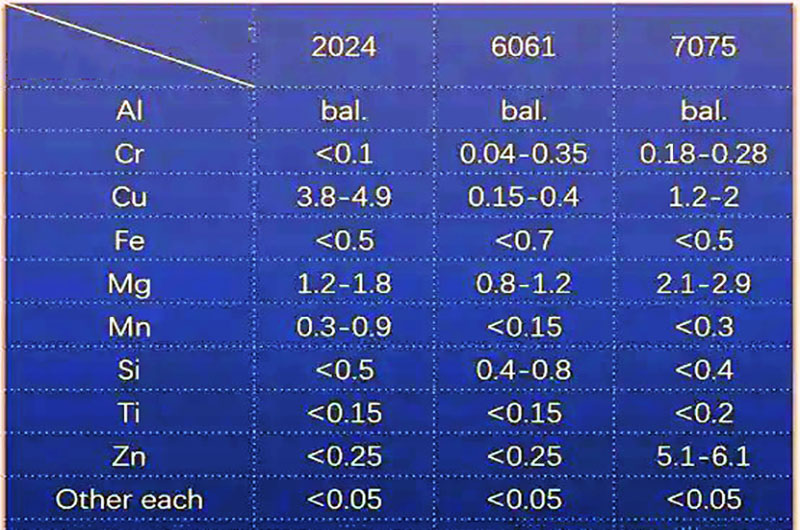
Aerospace Aluminium Alloys Room Temperature Stress Comparison
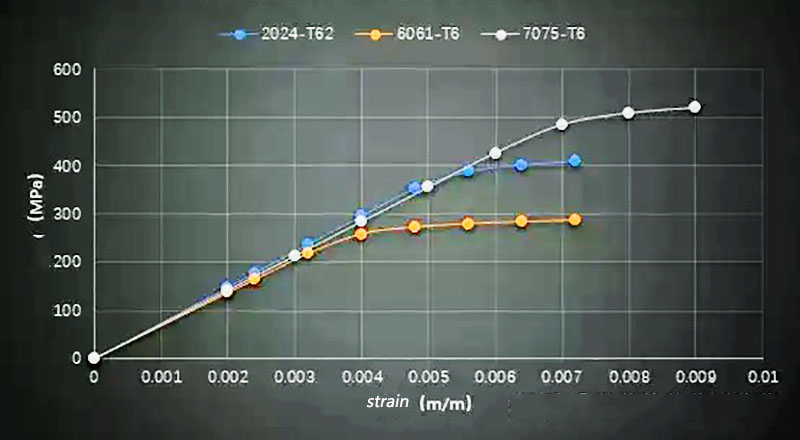
Aerospace Aluminium Alloys High-Temperature Yield Strength Comparison
High-temperature mechanical properties comparison shows that with an increase in temperature, the mechanical properties of the materials exhibit a significant decline. Between 150-200°C, the superiority relationships among different aluminum alloys change.
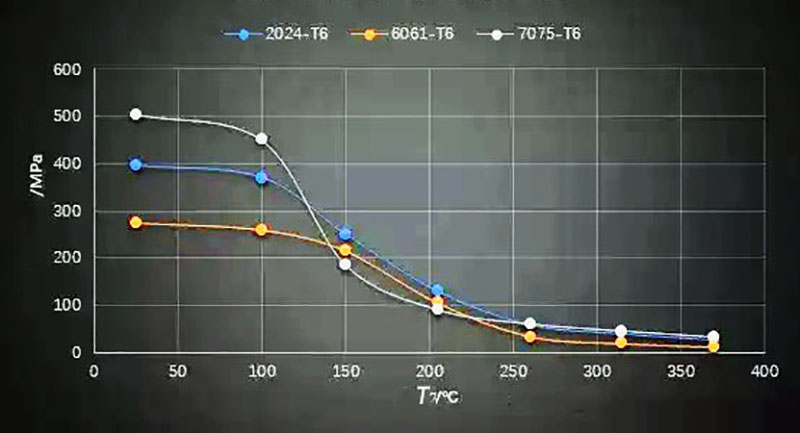
Aerospace Aluminium Alloys High-Temperature Tensile Strength Comparison
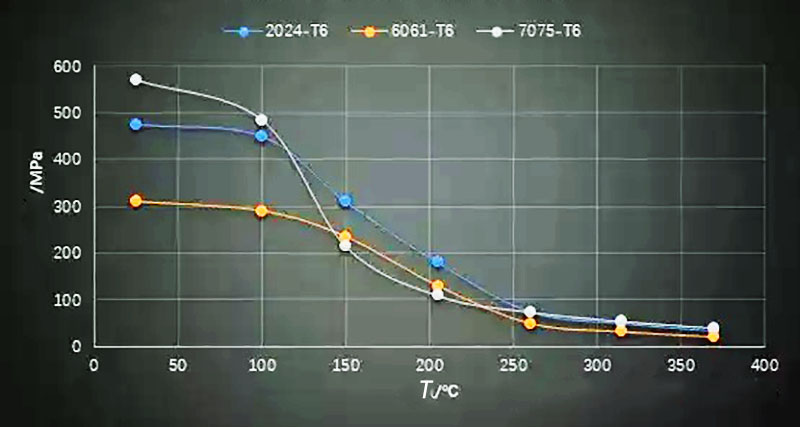
Aerospace Aluminium Alloys High-Temperature Elongation Comparison
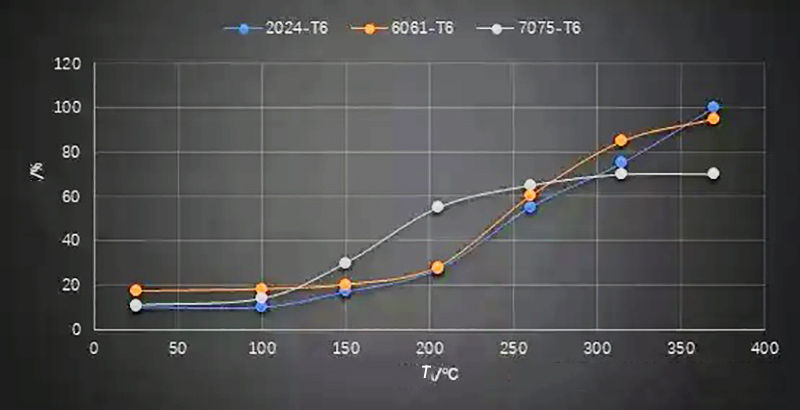
Aerospace Aluminium Alloys Low-Temperature Yield Strength Comparison
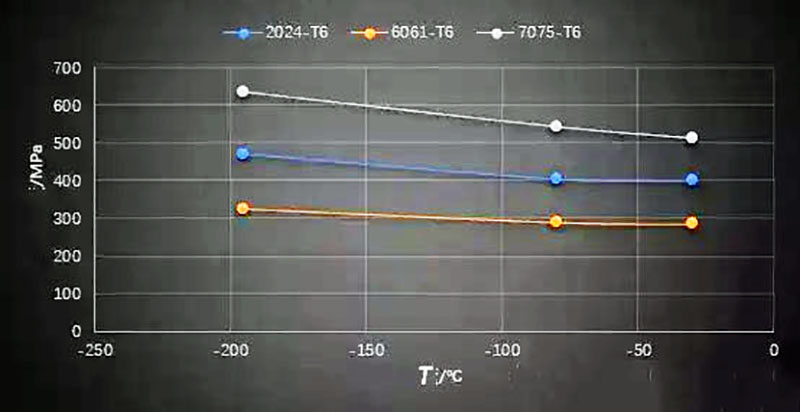
Aerospace Aluminium Alloys Low-Temperature Tensile Strength Comparison
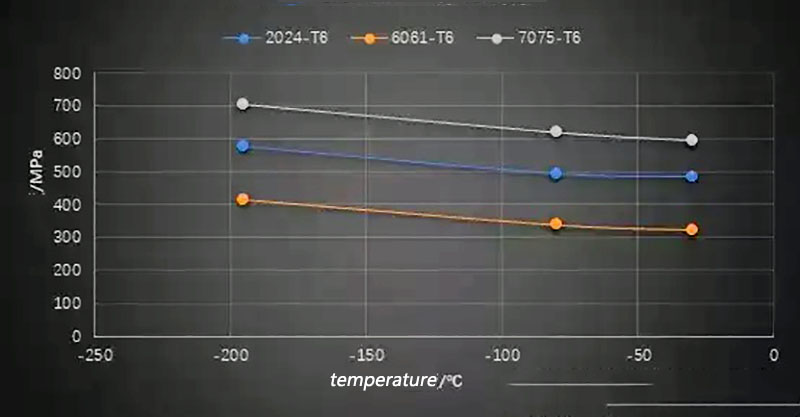
Aerospace Aluminium Alloys Low-Temperature Elongation Comparison
